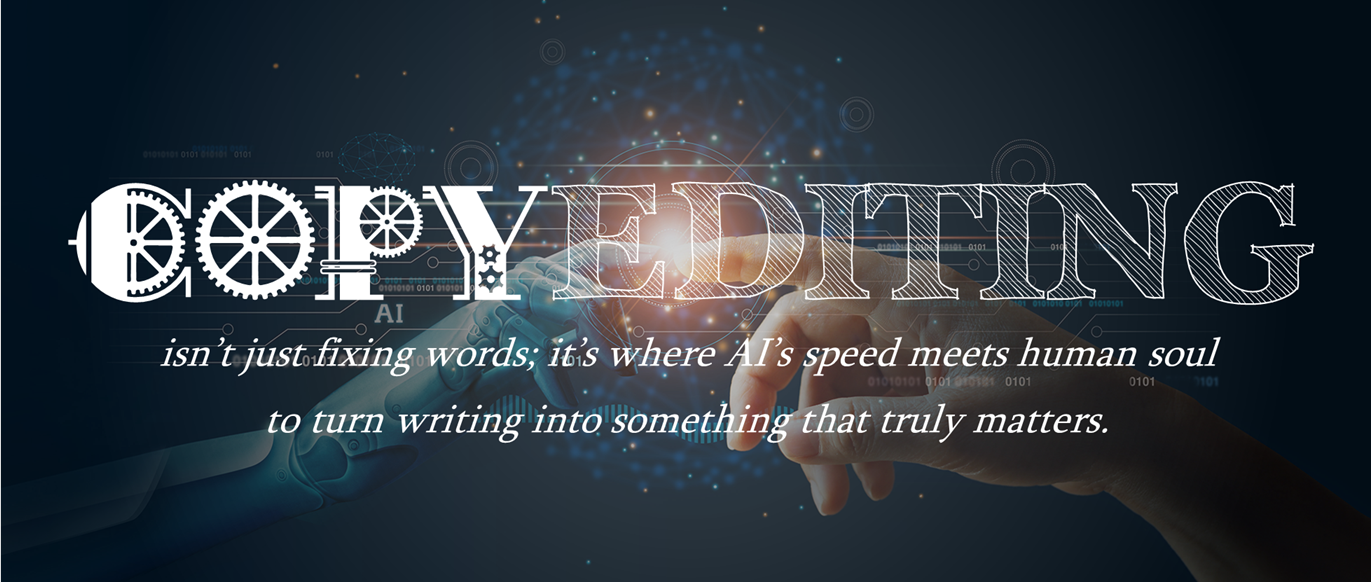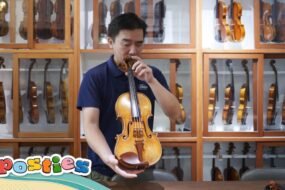
by Ruther Ray C. Ruado
I still remember the first time a student submitted an article that was perfectly formatted; clean layout, flawless grammar, impressive at first glance. But as I read, something felt amiss. It was flat, lifeless, and almost mechanical. The words lie stiffly on the page, like they’d been arranged by force, not feeling. It had no voice, no pulse, no soul.
Spoiler alert: it wasn’t written by the student.
Like many teachers today, I face the daily reality of artificial intelligence (AI) creeping into student work. Paragraphs with no soul. Essays with flawless grammar but zero insight. Such tools are fast, efficient, and, undeniably, tempting. But every time I read something written by a bot, I come back to the same dogma: writing is more than just stringing words together; it’s a human act.
More Than Correcting Mistakes
A lot of people think editing is about red pens and grammar rules. Perhaps they even imagine a stern figure pointing out typos and shouting about the usage of prepositions. But to me, copyediting is an act of care, like helping a friend be under the spotlight.
It’s asking: Is this clear? Is it respectful? Does it ring true? Copyediting isn’t about perfection. It’s about responsibility.
In my journalism class, I tell the students: You can write beautifully, but if your facts are off or your message is muddled, what good is it? You owe your readers honesty. And that starts with editing.
The Editor as Gatekeeper
In the newsroom, a copyeditor is not a luxury; they’re the last defense between misinformation and the public. A single unchecked quote or one wrong date in a report can cause serious damage. And once it’s out there? Good luck pulling it back.
When copyeditors work, they don’t just fix sentences; they guard the truth. They spot bias where others see opinion. They hear the missing distinction, the loaded phrase, the dangerous oversimplification. It’s not that glamorous, but it’s vital.
AI Isn’t Better Than You
Here’s where the real concern sets in: AI doesn’t know better. It can mimic tone, shuffle ideas, and spit out content that looks right. But it doesn’t feel anything. It doesn’t pause and contemplate, “Is this ethical?” or “Is this fair?”
AI doesn’t care if the quote it generated is marginally misleading. It won’t notice if the phrasing makes someone look bad. It has neither integrity nor cultural awareness.
Yes, AI is here to stay, and there is nothing we can do to reverse it. However, if we hand over the pen completely, we’ll wake up one day and question why our stories no longer feel human.
A Personal Mission in the Classroom
I take this work personally. I teach copyediting not purely because I am tasked to, but I want them to become accountable communicators. I want them to understand that their written work carries weight. They can either confuse, offend, mislead, or inform, uplift, and inspire.
When they start editing each other’s work, something changes. They see how word choices shape meaning. They become careful. Intentional. Even curious. They begin to ask not just “Did I say it right?” but “Did I say the right thing?”
In that moment, I see a spark. I see growth, not just in writing, but in judgment.
Human First
Here’s what I tell my students: Use AI if you must. Let it help with drafts, ideas, or outlines. But never let it speak for you. Your voice…your values…your judgment, that’s what really matters.
Using AI isn’t the problem; but relying on it to do everything is a line we shouldn’t cross.
When you find yourself as someone reading, editing, or teaching others to write, stay grounded. Don’t just look for what’s technically right. Ask the deeper questions; be the human in the loop.
Why We Still Need Editors
Copyediting isn’t just grammar and polish. It’s conscience on the page. It’s the quiet, unseen labor that makes writing trustworthy.
So, in this age of bots and instant content, let’s not forget what makes writing matter. Not just the craft. Not just the clarity. But the conscience is behind every word.
Let’s keep teaching it. Let’s keep doing it. And most importantly, let’s stay human in how we read, write, and revise.
Because when the world starts to favor speed over authenticity, convenience over conscience; who will protect the soul of our stories?
About the Author:
 Ruther Ray C. Ruado hails from the cool and vibrant city of Baguio, Philippines. He is presently pursuing a Doctor of Education degree, majoring in Educational Management, at Baguio Central University (BCU). Driven by a passion that balances conventional and unconventional approaches to contemporary issues, he explores the dynamic intersections of popular culture, education, and social change.
Ruther Ray C. Ruado hails from the cool and vibrant city of Baguio, Philippines. He is presently pursuing a Doctor of Education degree, majoring in Educational Management, at Baguio Central University (BCU). Driven by a passion that balances conventional and unconventional approaches to contemporary issues, he explores the dynamic intersections of popular culture, education, and social change.











